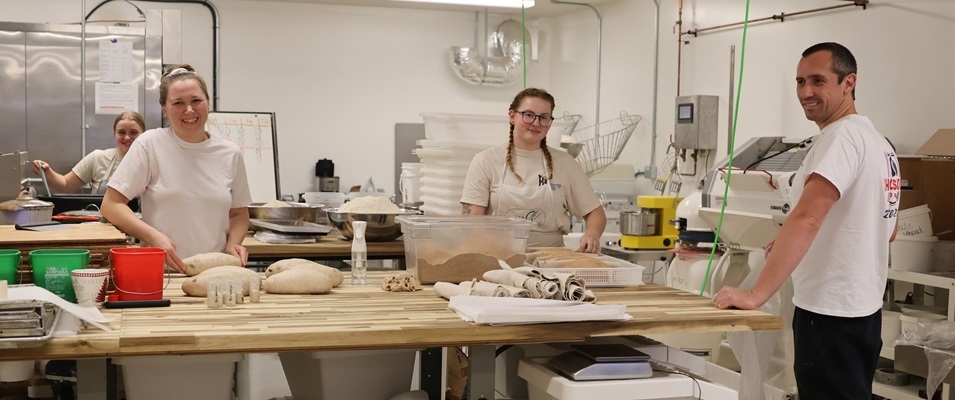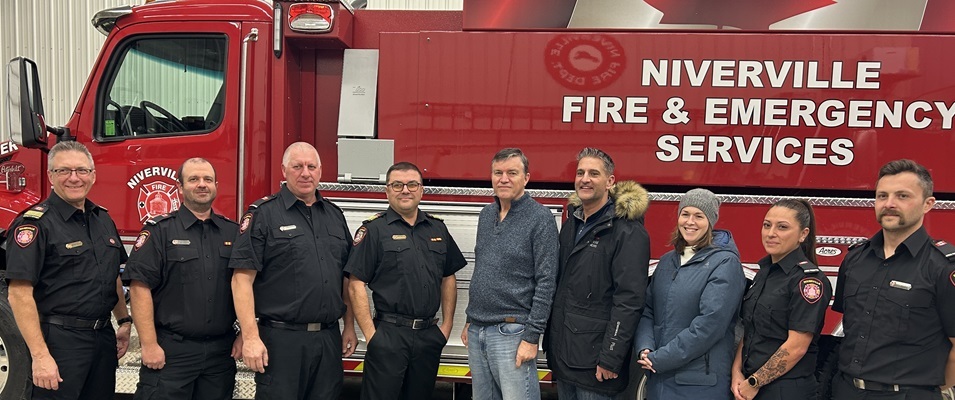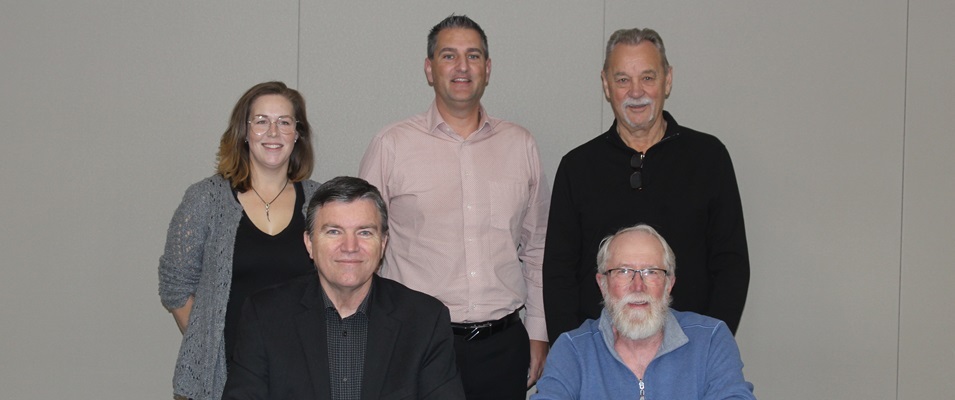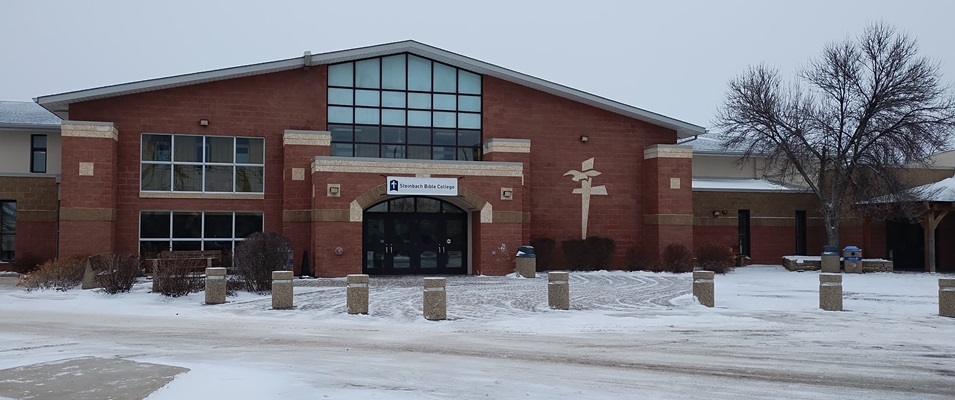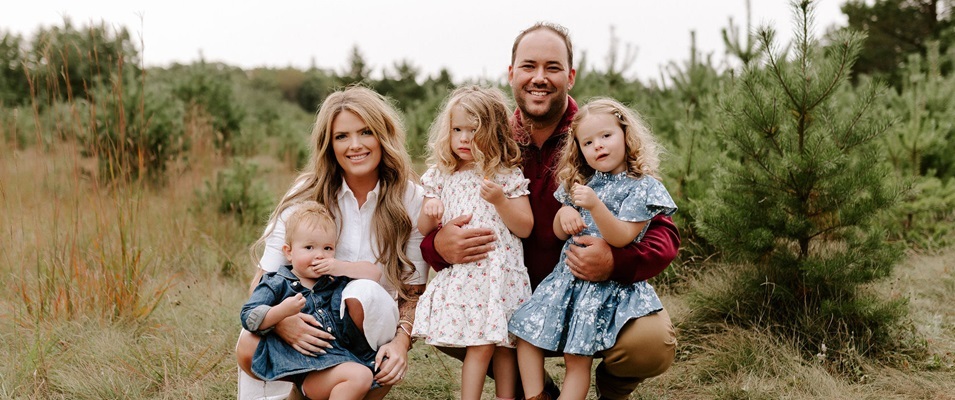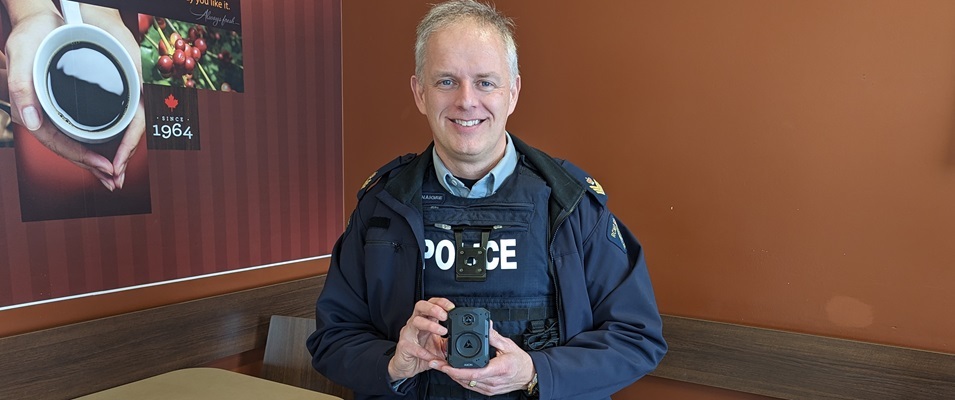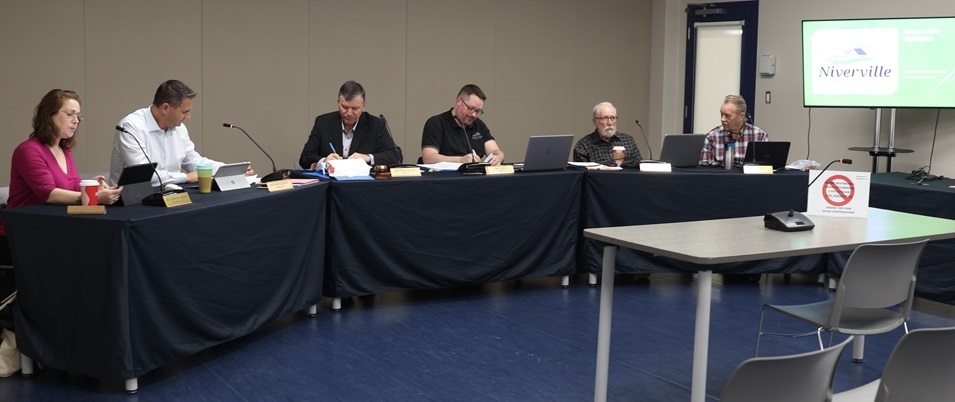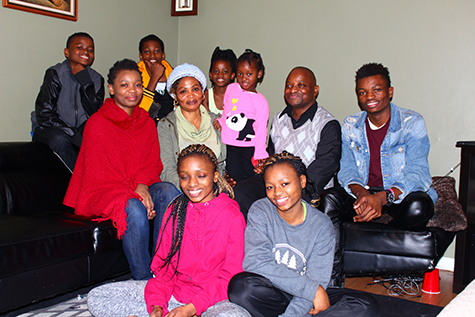
Justin Katotoka and Scolastique Issa are settled snuggly on the chesterfield of their humble living room, surrounded by eight of their 11 children as they welcome the pale-faced visitor who’s come to hear their story—a story that includes all the benchmarks of a riveting novel.
The family has lived in Niverville for only four months but already define it as home. This small town, after all, was their choice and not one forced upon them by government decree or wartime circumstance.
For nine years, the Katotoka family lived as displaced persons in Uganda, Africa. For all of their lives before that, they lived in the Democratic Republic of Congo, a Central African country embroiled in an almost 60-year war with no foreseeable end.
The Congo is known for its volcanoes, dense rainforests, and rare mountain gorillas. It is also rich in a variety of natural resources such as crude oil, copper, gold, diamond, and other minerals in high demand around the world. Some of these minerals, known as “conflict minerals,” are prevalently used in electronic devices. In the Congo, armed groups fight for control of these minerals, abusing the profits from their mining for campaigns of violence.
Since its independence from Belgian colonialism in 1960, the Congo has been ravaged by decades of armed conflict which has been responsible for the death of more than five million of its people. It’s been called the deadliest conflict since World War II. The Congolese army and other armed factions have a long, brutal history of recruiting child soldiers. The United Nations reports at least 1,000 cases of child-soldier recruitment between 2012 and 2013 alone. Over 450,000 refugees have left the Congo to seek sanctuary in neighbouring countries.
Father Justin Katotoka remembers his earlier life in the Congo, working for a pharmaceutical company before he left his job to volunteer with local non-government organizations (NGOs). In his new role, he counselled and aided rape victims, and taught nutrition and health to struggling families.
“It was very dangerous,” Katotoka says.
Helping torture victims was also part of his mandate, details of which he was required to document in reports. Eventually, he too became the target for capture and torture. This became the breaking point for the family and the reason he and Issa collected their children and fled.
“When you run, you don’t know where you are going,” says Issa.
Their urgent departure eventually took them to Uganda, a neighbouring country which had become a refuge for countless other Congolese before them. The family made their temporary home in the capital city of Kampala. Katotoka and Issa were able to find jobs, a distinction that made them “urban refugees,” and set them apart from those billeted to refugee camps, unable to support themselves.
While Katotoka once again found work in the healthcare field, Issa went to work teaching refugees how to make handmade soaps and other useful household items. The children were able to attend school where they also learned to speak English.
But without visas, the family’s future was uncertain. Katotoka applied to UNHCR, the United Nations refugee agency for official refugee status, which would allow them to be considered for resettlement in a welcoming country. This required numerous interviews and assessments to determine that the family would, in fact, be in grave danger should they be sent back to the Congo.
“When you apply to organizations like UNHCR, they first send applications to different countries like Australia, Europe, United States, or even Canada and you have no idea in which country your application will be accepted,” says the eldest son, Chris. “So it [can take years] for you to find out which country you’ll be going to and then you have to spend years waiting for representatives from [that country] to interview you. If you pass the interview, then you can be assured to get visas to go to that country.”
UNHCR prioritizes refugees based on family size, health and security concerns, or extent of vulnerability. The family had learned about large families who had been separated and sent to different countries to expedite their resettlement.
Days turned into months and then years. The family checked regularly at agency offices on their status and where they fit into the queue. Answers didn’t come and they eventually stopped asking, ready to accept their fate. They prayed that, should they go, they would not be forced to separate their family of 13.
“If we die, we die together,” says daughter Chance. “If we suffer, we suffer together.”
“At some points we had lost hope for coming abroad,” says Chris. “We thought maybe our application was being ignored.”
Daughter Tina says, “It took a lot of years. We had stopped going to the [UNHCR] office to ask about our case. We are like, ‘Maybe God forgot us,’ because other people were going and not us.”
Nine years after their arrival in Uganda, the family received word of their potential resettlement to Canada. They recall the immense joy and relief they felt upon receiving the news.
“You go to the church and you cry and cry,” says Issa.
“When we got the confirmation that we were coming to Canada, some [of us] believed it, but others said, ‘We have to witness this,’” Chance says. “For me, I never believed it until I stepped my foot onto the plane.”
The family underwent a final testing of their health, eliminating the possibility of tuberculosis or other illnesses that would have sealed their fate to Ugandan soil until the next opportunity arrived. They were all cleared.
As government-sponsored refugees, the family arrived in Toronto and were greeted by representatives who outfitted them with warm coats. It was March, but the family was still taken aback by the cold temperatures, having only known the tropical climates of Central Africa. There they waited for three weeks for visas and confirmation of their final destination.
“The government is the one that is responsible to look for the place they’ll send you and you have no option,” says Chance. “You don’t know anything until the final day. For us, we were hoping that we’d go to the States or Australia, but we ended up coming to Winnipeg.” She laughs. “This was not our dream.”
They eventually found themselves in subsidized housing in downtown Winnipeg, adjusting to the strange culture and local foods. Members of City Church, a Winnipeg church that works closely with newly arrived refugees, quickly befriended the family and helped them through the cultural transition, enrolling the older children at Mennonite Brethren Collegiate Institute at the parents’ request for a Christian school.
At the end of their one-year contract with the government sponsorship program, Katotoka and Issa finally had the freedom to move their children away from the city and into an environment they felt would better foster a positive future for their children and their strong Christian faith. Historically, the children of refugee families have been targets for gang recruitment due to their vulnerability and low-income status. The couple would not take this chance.
Upon recommendation from friends at City Church, the family made the curious drive to Niverville where they met Elaine Kehler, cousin to Sue Nielsen from City Church.
“We are very happy with this place,” says Katotoka. “We came here, we checked the town and found this house and we said, ‘This place is good for us.”
Their oldest two daughters remained in Winnipeg, one now married and with a daughter of her own. The other is engaged to be married next year. The remaining 11 now live in a small bungalow in Niverville, enjoying their freedom and each other in the cosy space that is their new home.
They think often of what they lost when they fled the Congo.
“Being with [extended] family so close,” says Tina of her memories from the home country. “Some of [the younger kids] don’t know what our grandmother looked like or our uncles and aunts. We always think about them and we just go back to the memories that we have. We used to go to my grandpa’s place and play around the house and eat together. We miss those kinds of things. We were a big family, especially on my dad’s side.”
Katotoka says he is uncertain whether their extended family knows where they are today. Communication with them has been made impossible by the war and unrest. He is currently studying nutrition and health sciences online, a course provided by a college in Ontario. He will complete the two-year course in January and hopes to find work locally as a nutritionist or dietician.
Chris will graduate high school next year and has already applied to the University of Winnipeg to study biochemistry.
Seventeen-year-old Chance still dreams of Australia, imagining a move there in her future. Her father gently rebukes her, longing to keep his children close as long as possible.
“Our dream now is here,” he says. “Canada is very good. We are very happy.”





